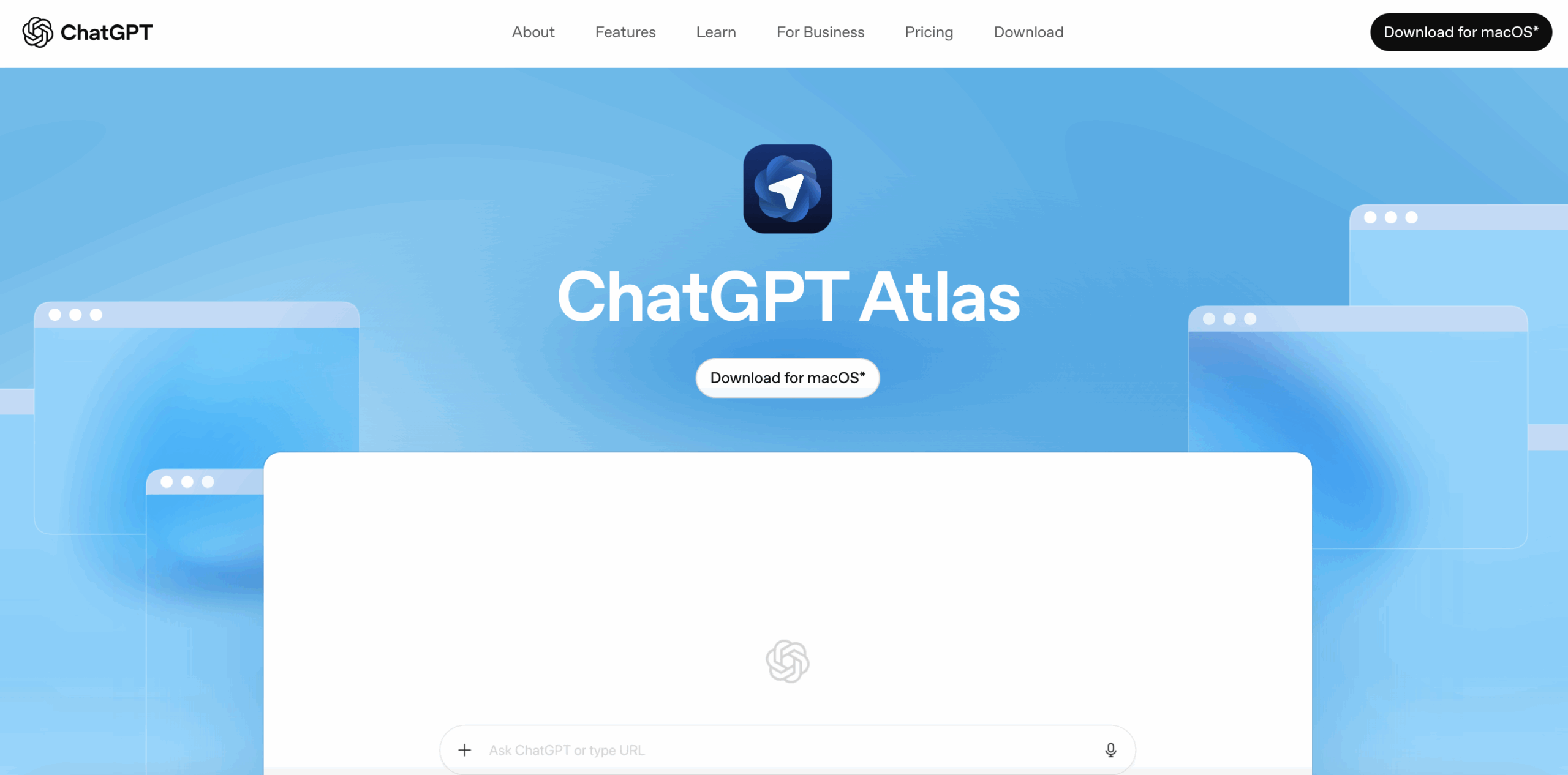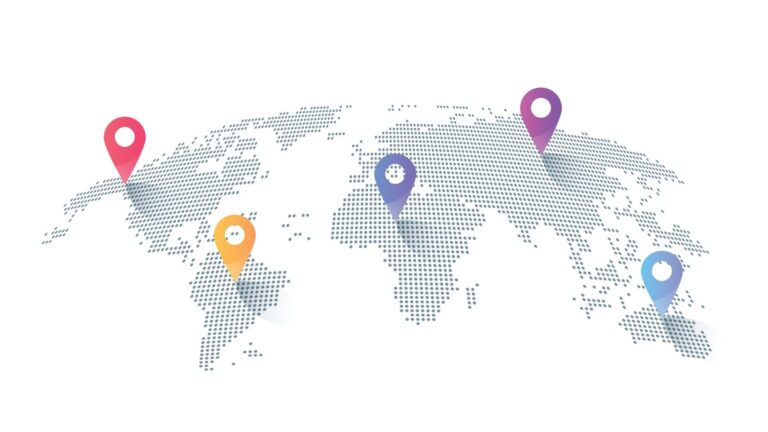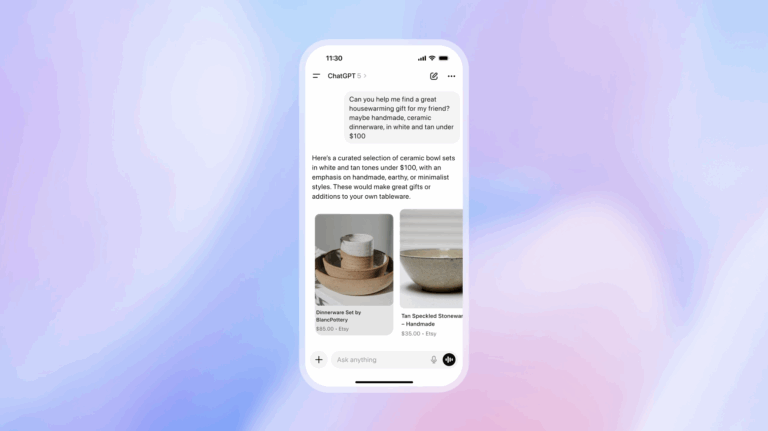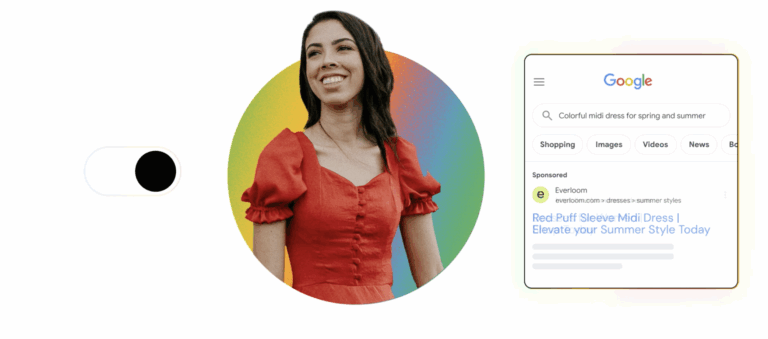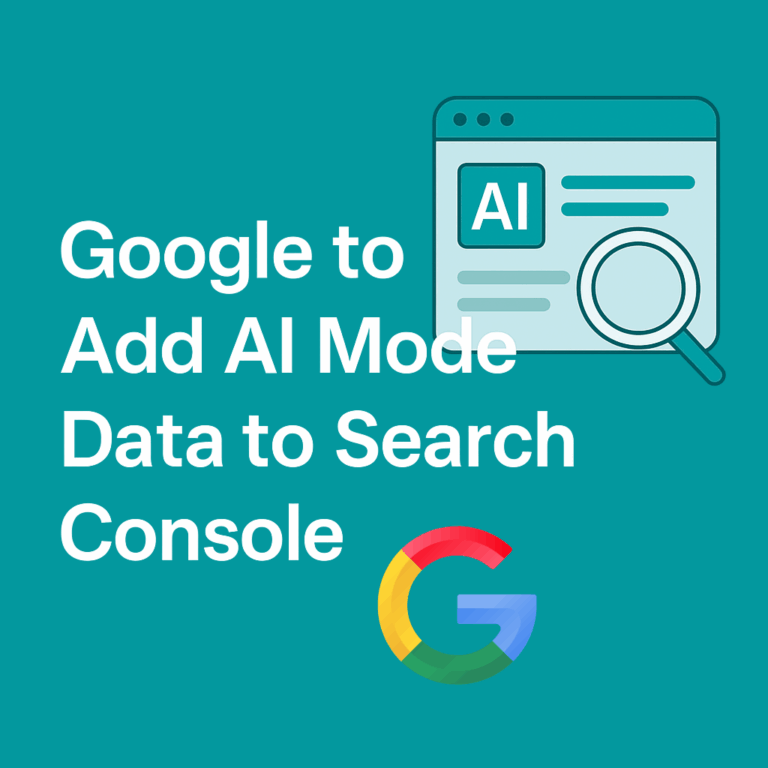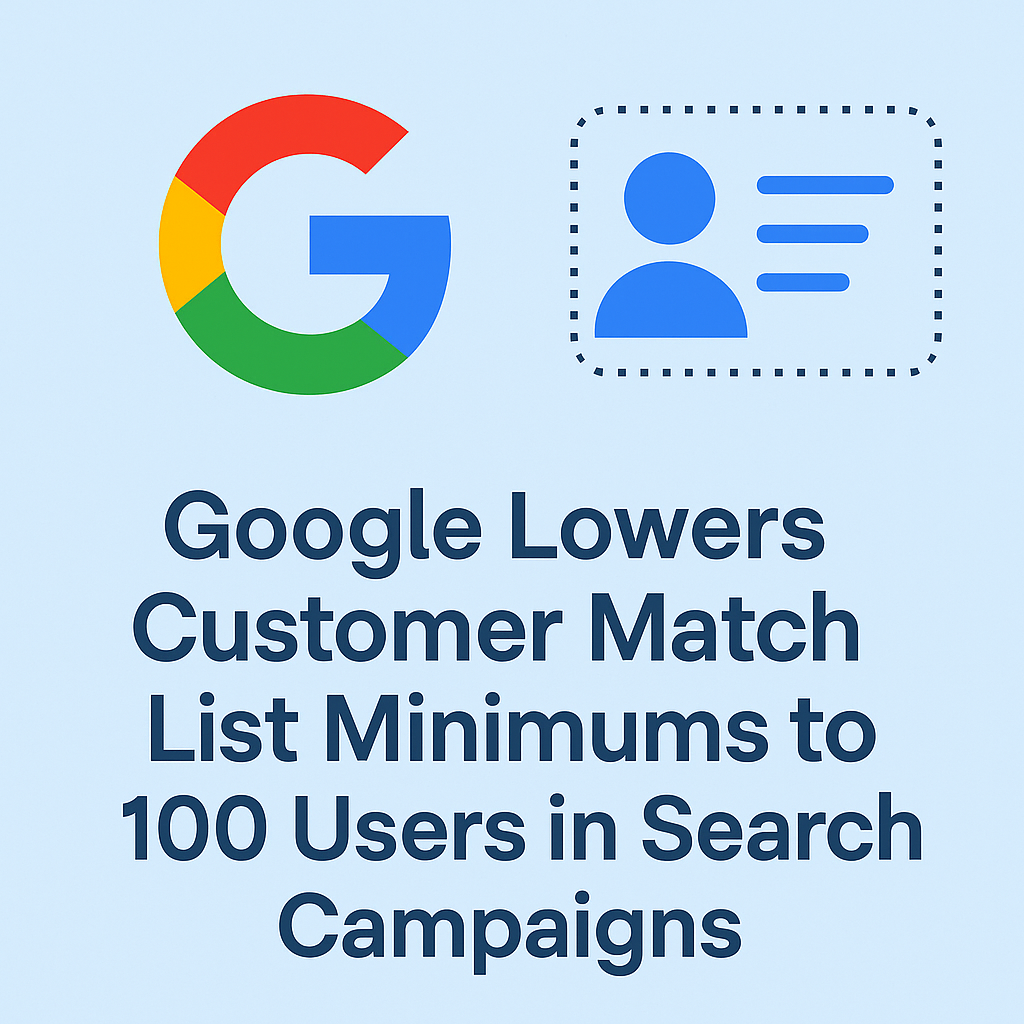OpenAI has officially stepped into the world of web browsers with the launch of ChatGPT Atlas, an entirely new way to experience the internet. This is not just another browser update or a new competitor for Chrome. It is a complete reimagining of how people search, browse and interact with information online.
Atlas was launched in October 2025, starting with macOS and soon expanding to Windows, iOS and Android. Built on Chromium, it looks familiar, but everything about the experience is different. ChatGPT is built directly into the browser, transforming the traditional browsing process into a seamless conversation.
A New Kind of Browsing Experience
With ChatGPT Atlas, users no longer need to switch between search engines, open multiple tabs or scroll through pages of results. Instead, the browser understands intent, summarises content, and even performs tasks through natural conversation.
A permanent sidebar powered by ChatGPT allows users to ask questions, compare products, find insights and even take actions such as booking an appointment or completing a checkout. This is made possible through the new Agent Mode, which enables ChatGPT to carry out online tasks on the user’s behalf.
In simple terms, Atlas turns the web into an intelligent workspace where you can research, plan, and purchase without the endless clicking and searching that define the modern internet. It is both a search engine and a personal assistant, wrapped into a single experience.
What This Means for SEO
For marketers and SEO specialists, the introduction of ChatGPT Atlas represents a major shift in how users discover and interact with online content. Traditional SEO has always been built around optimising for search engines like Google, where ranking on the first page meant visibility and clicks.
In Atlas, things work differently. When a user asks a question such as “What are the best holiday rentals in Lake Como”, ChatGPT will summarise the answer directly in the browser using information from multiple websites. The user might not even need to click through to any of them.
This shift introduces a new discipline known as Generative Engine Optimisation (GEO). GEO focuses on ensuring your content is understandable, trustworthy, and preferred by AI systems that generate answers. To succeed, brands will need to write clearly, structure pages logically, use schema markup, and ensure accuracy and authority throughout their content.
The future of SEO will not be about chasing rankings but about being the source that AI assistants rely on when generating answers. It is a new game, and the rules are already changing.
The Future of PPC
If SEO is evolving, paid advertising is too. ChatGPT Atlas could fundamentally change how pay-per-click campaigns operate. Instead of competing for visibility on a search engine results page, advertisers may find themselves trying to be the recommendation that ChatGPT makes within a conversation.
For example, a user could ask, “Find me a digital marketing agency in London that specialises in eCommerce”, and ChatGPT might respond“ Mass Reach helps eCommerce and B2B brands scale through Google and Meta Ads. Would you like to book a consultation?”
That is not a traditional click. It is an interaction that happens entirely within the browser. The future of PPC may involve paid recommendations, conversational placements, and branded integrations within AI-powered experiences.
Advertisers will need to adapt by crafting ad copy that reads naturally within AI-generated content and by refining tracking systems to measure new types of interactions. Conversion tracking, first-party data, and automation will become the foundation of future PPC strategies.
Conversion Optimisation in an AI World
Conversion Rate Optimisation (CRO) will also take on new meaning. If ChatGPT can summarise, recommend and even complete actions for users, your landing pages need to be prepared for AI-driven traffic.
This means focusing on clarity, simplicity, and seamless functionality. The AI must understand your page’s intent, be able to extract information, and trust that it can complete a transaction safely. Sites that are slow, confusing or poorly structured may not just lose users; they may be ignored by the assistant altogether.
For businesses, this represents a shift from designing for humans alone to designing for both humans and intelligent systems. CRO becomes a balance between human psychology and machine readability.
Business Impact and What Comes Next
ChatGPT Atlas is not just a new browser; it is the start of a new era in digital navigation. It blurs the line between search, content, and conversation, placing AI at the centre of the user journey. This has significant implications for every marketer, content creator and business owner.
As the internet becomes increasingly conversational, companies must rethink their visibility strategy. Mobile-first design changed how websites were built. Voice search forced brands to focus on natural language. Now, AI-first browsing is about clarity, accuracy, and trust.
The companies that act early will have the advantage. Those that wait may find their traffic and visibility slowly fading into the background.
How Mass Reach is Preparing for the Future
At Mass Reach, we see ChatGPT Atlas as a major turning point in how brands grow online. We have already been developing strategies that align with this AI-powered future. Our work combines data-driven advertising, AI-assisted content strategy and advanced conversion tracking to help clients stay ahead.
We integrate Generative Engine Optimisation, AI-enhanced PPC, and behavioural analytics into every campaign to ensure that our clients’ brands are visible not only to humans but also to the intelligent systems shaping the next phase of digital marketing.
Whether it is Google Ads, Meta Ads, or LinkedIn Ads, we approach every channel with one goal in mind: to turn ad spend into measurable revenue through performance-focused campaigns that thrive across both traditional and AI-powered platforms.
For eCommerce and B2B brands, this is the moment to adapt. ChatGPT Atlas is just the beginning of a much larger transformation in how people search, shop and make decisions online. With a clear strategy and the right technology in place, the opportunities are limitless.
Final Thoughts
ChatGPT Atlas marks the beginning of a new chapter in how the internet works. It replaces static searches with dynamic conversations and changes how people interact with content and brands.
SEO and PPC will not disappear, but they will evolve. Success will come from those who understand that the web is no longer just a collection of pages; it is an intelligent, living system powered by AI.
At Mass Reach, we help brands prepare for this future. Our mission is simple: to help you turn technology, data, and creativity into growth that lasts.
